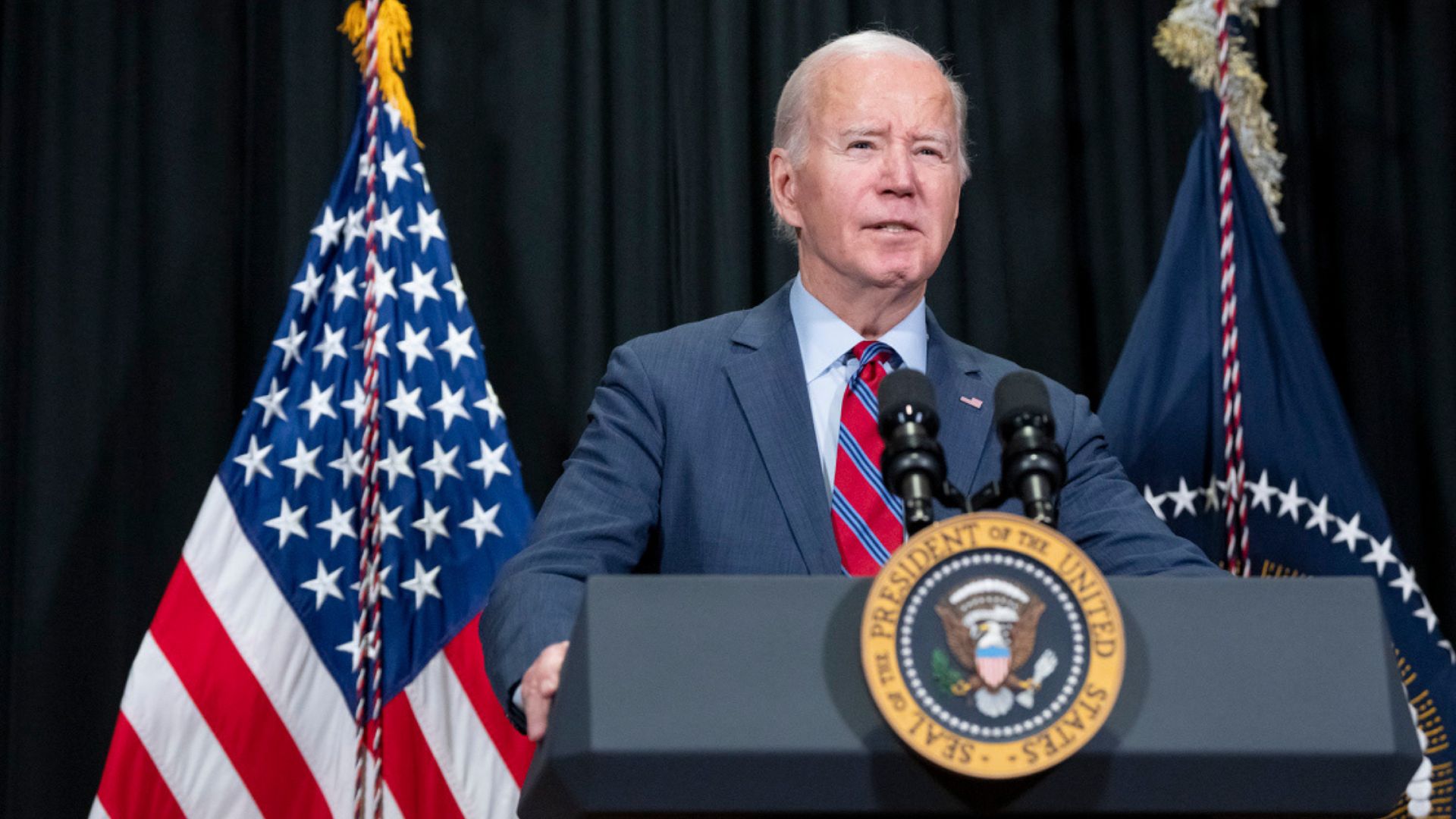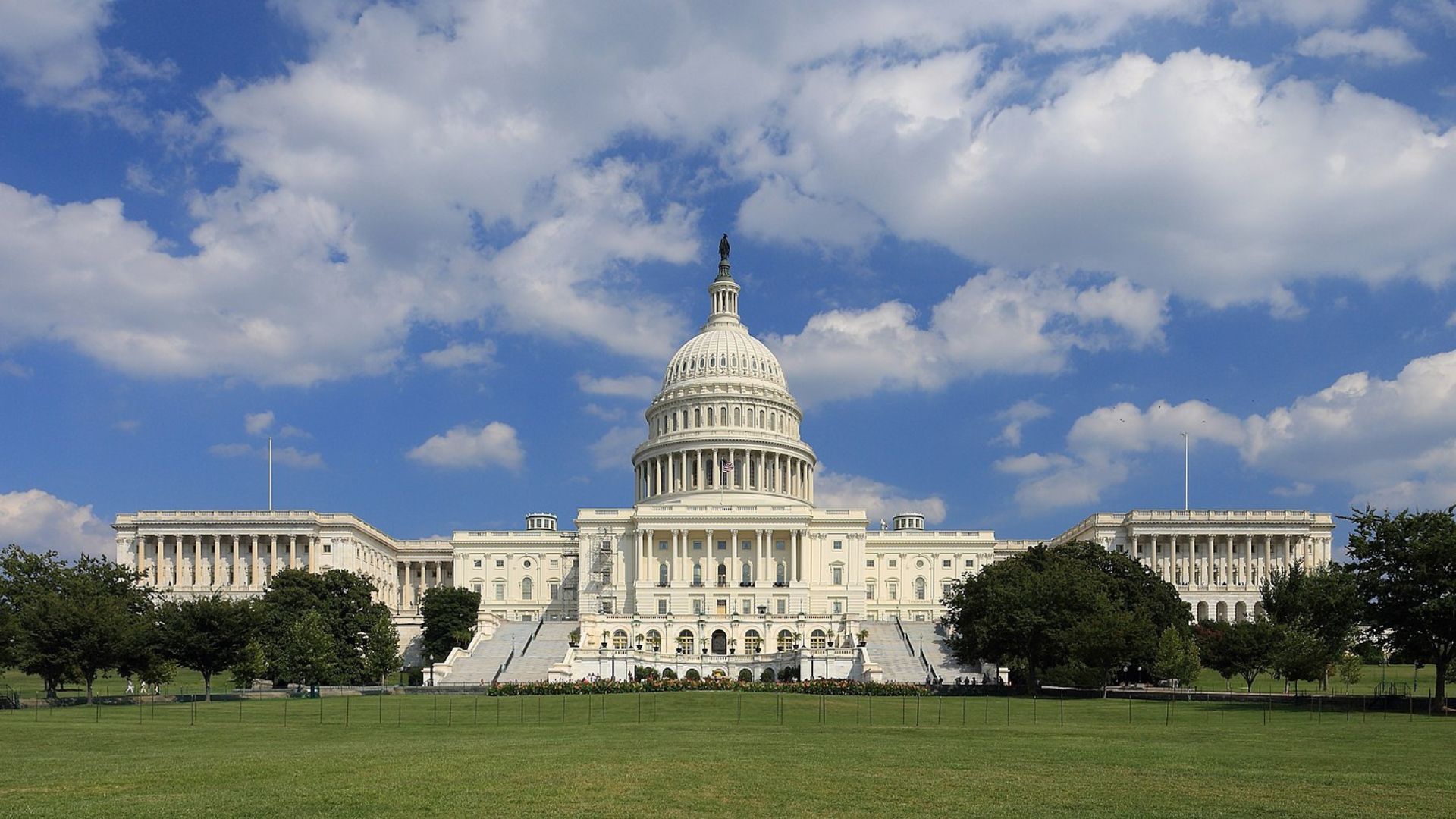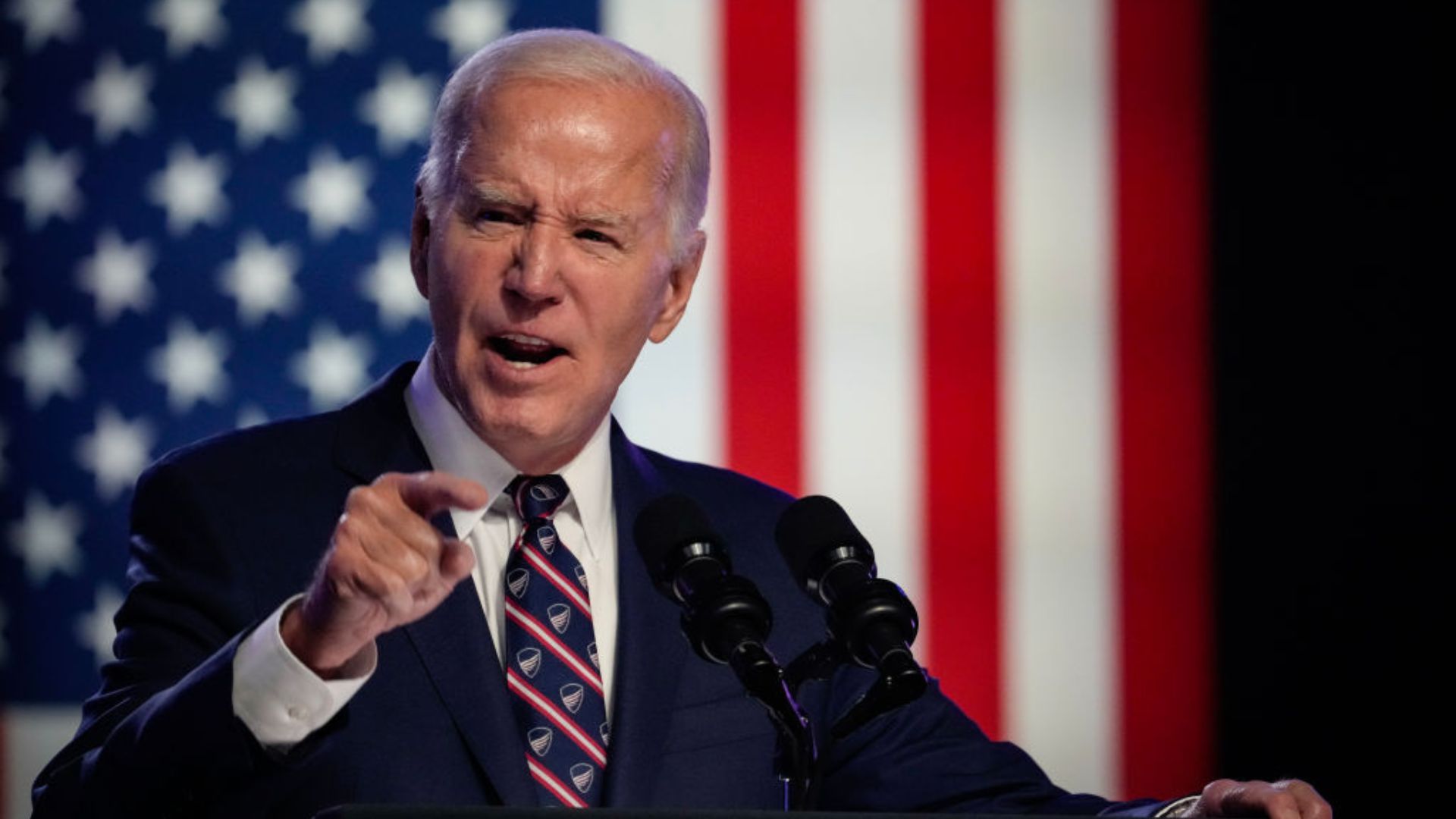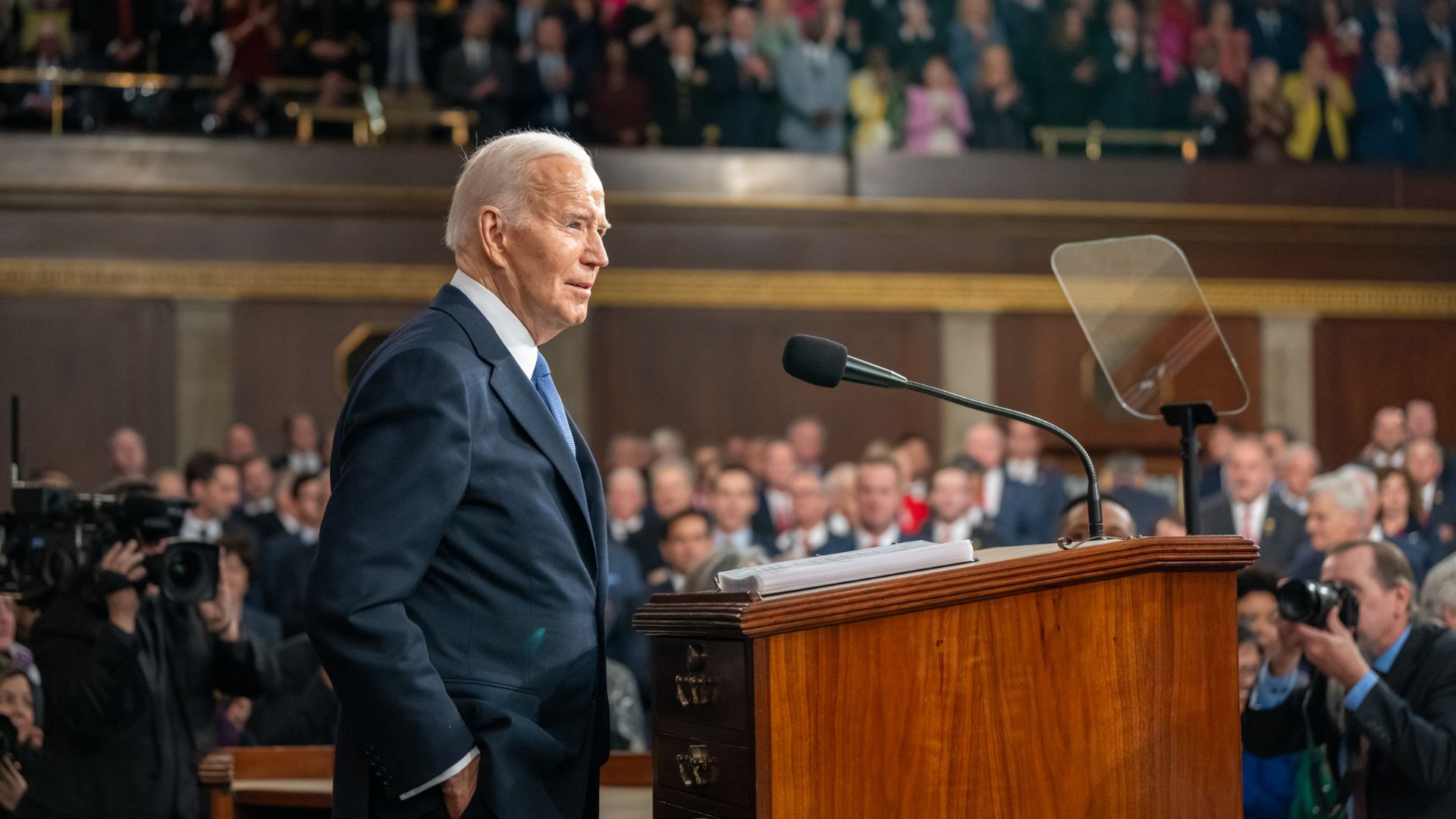President Biden is pushing the biggest capital gains tax increase the U.S. has seen in 100 years.
His 2025 budget proposal is eyeing a top rate of a whopping 44.6% on long-term capital gains. That means in places like California, tax rates could surpass 50%.
Breaking Historical Records

Biden’s proposed rates would surpass all previous records, eclipsing the 40% peak seen during President Jimmy Carter’s tenure in the late 1970s.
Capital gains tax rates have varied since the 1920s, often staying below 30% and sometimes falling as low as 13%.
Economic Ripple Effects

A wave of concern is sweeping through the economic and investment communities regarding the proposed 44.6% tax rate.
Critics contend that such a steep increase could deter investment, particularly affecting key sectors like technology and potentially exacerbating economic challenges for the middle class.
Equity at the Core of Fiscal Policy

Framed as a stride toward economic and racial equity, the hefty tax increase proposed by the Biden administration is intended to balance the scales.
It predominantly targets wealthier, white Americans who are more likely to possess substantial investments.
Tackling Racial Wealth Gaps

Highlighting severe disparities, the administration shows that in 2023, 73% of white families owned homes.
This is in stark contrast to only 46% of Black families and 51% of Hispanic families. Biden’s tax reform aims to narrow these racial wealth gaps.
State-Level Tax Sticker Shock

Residents of California could encounter a daunting capital gains tax rate of 59%.
Similarly, those in New Jersey, Oregon, Minnesota, and New York could face rates exceeding 54%, which could fundamentally alter their investment and savings behavior.
Redefining the Death Tax

Significant discussions are underway about reforming the Death Tax.
Biden’s proposal includes a new tax triggered by eliminating the stepped-up basis at death, which would automatically apply a capital gains tax. Such a modification holds deep implications for inheritance practices.
Crypto Markets in the Crosshairs

The proposed budget aims to recalibrate the financial landscape by eliminating tax subsidies for cryptocurrency transactions.
Targeting these adjustments will ensure more equitable taxation across various investment forms.
Corporate Tax Climbs

Biden’s budget doesn’t only target individual investors; it also plans to lift the corporate income tax rate to 28%.
This increase seeks to enhance government revenues and could lead to higher operational costs for businesses across the country.
Comparing Tax Rates Globally

With Biden’s plan, the U.S. is poised to impose one of the highest capital gains tax rates globally, far exceeding those of economic counterparts like China.
Such a move positions the U.S. in a distinctive and potentially challenging economic stance.
Congressional Hurdles Ahead

All these tax changes hinge on Congress’s approval.
The proposed adjustments are part of a larger economic framework that will undergo intense negotiations and possible modifications in the legislative arena.
Summing Up Biden’s Tax Strategy

By proposing a significant rise in capital gains taxes, President Biden is placing a high-stakes wager on reshaping America’s financial landscape.
His strategy, geared toward fostering greater economic equity and ensuring fiscal sustainability, is set to heavily influence investments.
Expanding on the New Tax Reforms

Building on a commitment to fairness, President Biden’s latest tax proposals extend beyond individual tax adjustments, focusing on creating a balanced financial ecosystem.
These reforms aim to ensure that both the wealthiest Americans and multinational corporations contribute more significantly to the national economy, fostering a sense of shared fiscal responsibility and economic equity.
The 25% Billionaire Tax Minimum

In a bold move to address income inequality, President Biden’s budget introduces a minimum tax rate of 25% for billionaires.
This initiative targets those with wealth exceeding $100 million, ensuring they pay a fair share compared to the average rates paid by middle-income earners, thereby addressing a critical loophole in the current tax structure.
Increasing the Corporate Minimum Tax

The proposal to raise the corporate minimum tax rate from 15% to 21% also marks a significant stride towards fiscal equity.
This increase affects billion-dollar corporations, ensuring that their contributions align more closely with their earnings, which is a step towards rectifying imbalances in tax contributions compared to smaller businesses.
Global Tax Agreement Impact

Leveraging a global tax agreement signed by over 130 countries, the Biden administration aims to mitigate the race to the bottom in corporate tax rates.
This international accord is expected to enhance domestic revenue by curtailing profit shifting and tax base erosion among multinational corporations.
End to Tax Breaks for Million-Dollar Executives

President Biden proposes to eliminate tax deductions for compensation over $1 million to any employee of a C corporation.
This policy is designed to discourage exorbitant executive pay packages, thus promoting a more equitable distribution of corporate earnings and reducing income disparity.
Quadrupling the Stock Buybacks Tax

To counteract the preferential treatment of stock buybacks over dividends, the new budget proposes a fourfold increase in the tax rate on stock buybacks, raising it from 1% to 4%.
This measure aims to motivate corporations to reinvest profits into growth and productivity, benefiting the wider economy.
Elimination of Fossil Fuel Subsidies

The Biden administration is set to eliminate federal tax subsidies for the oil and gas industry, which have historically supported these companies’ massive profits.
By removing these subsidies, the budget redirects focus towards sustainable energy investments, aligning with broader environmental objectives.
Reform of Real Estate Tax Loopholes

Closing the “like-kind exchange” loophole, which has uniquely benefited real estate investors, is a pivotal element of the new tax reforms.
This change will prevent indefinite postponement of tax payments on profits, fostering a more equitable tax environment across different asset classes.
Cryptocurrency Tax Reforms

Aligning cryptocurrency taxation with other securities, the administration is set to eliminate tax subsidies that allowed crypto investors to claim excessive losses.
These reforms would standardize the rules for investment losses and gains, ensuring fairness and transparency across all forms of investment.
Support for Middle-Class and Working Families

By restoring the expanded Child Tax Credit and enhancing the Earned Income Tax Credit, President Biden’s tax plan directly supports 66 million children and 19 million working-class Americans.
These measures aim to alleviate poverty and provide financial relief to struggling families, making day-to-day expenses more manageable.
Increased Medicare Tax Contributions

To ensure the indefinite solvency of Medicare, the budget proposes an increase in the Medicare tax rate from 3.8% to 5% for individuals earning over $400,000.
This adjustment, coupled with closing existing loopholes, secures long-term funding for one of the nation’s crucial healthcare pillars.
Long-Term Goals and Fiscal Sustainability

President Biden’s tax strategies are designed to not only address immediate fiscal needs but to ensure long-term sustainability and fairness.
By increasing tax contributions from the wealthiest and largest corporations, these reforms aim to reduce the national deficit and promote a healthier economic future for all Americans.
